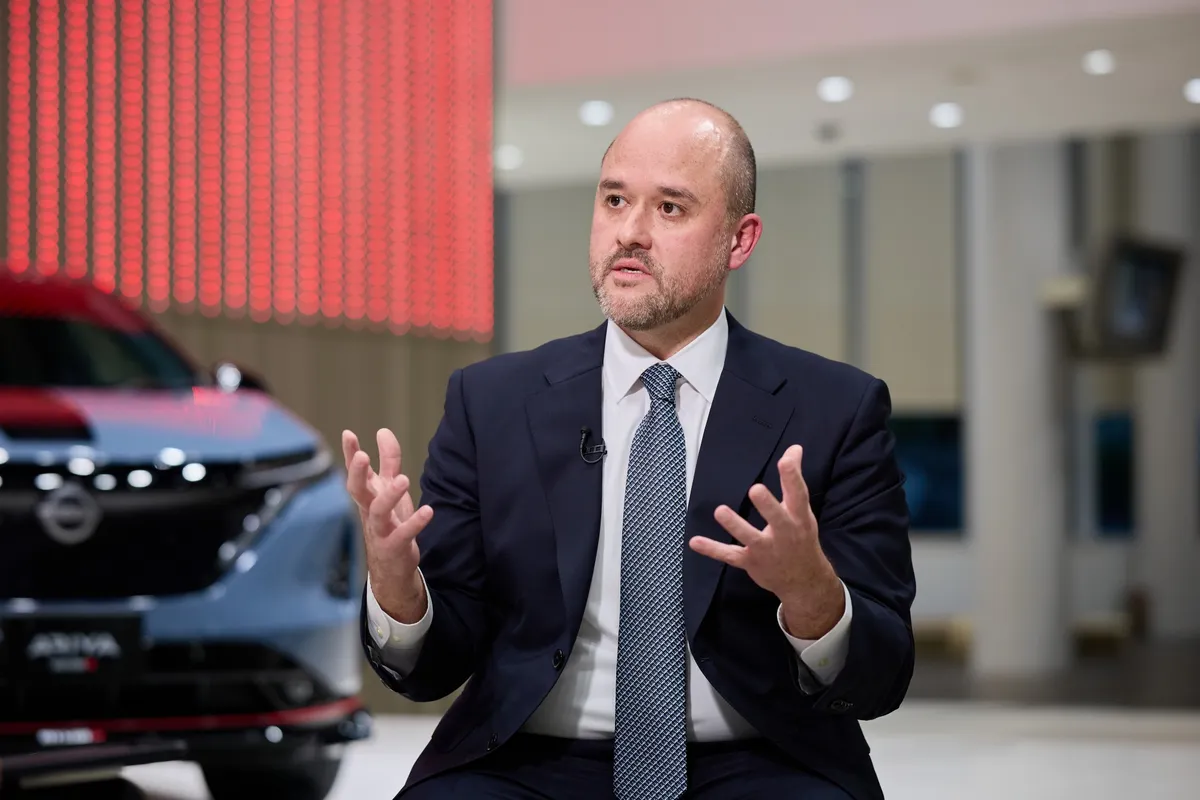SUBSCRIBE TO OUR NEWSLETTER FOR FREE AND STAY UPDATED.
Nissan Motor Co’s ageing lineup is next on the fix-it schedule as the Japanese carmaker attempts a makeover designed to save it from its worst financial crisis in a quarter century.
“We are entering now the phase in which we start rolling out a lot of new cars,” chief executive officer Ivan Espinosa said in an interview on Wednesday at Nissan’s headquarters in Yokohama. That includes reducing the bureaucratic burden of bringing fresh models to market, “shortening the development process significantly,” he said.
“This is going to help us with having the right cadence of product and reacting a bit quicker to allow us to cope with all the shifting trends in the market,” Espinosa said.
Pressure is mounting on Espinosa, 46, to overhaul Nissan as its financial position continues to deteriorate.
The collapse of talks to combine with Japanese peer Honda Motor Co and a complicated relationship with key shareholder Renault SA has meant Nissan is going it alone.
In May, the carmaker said it will downsize by cutting 20 000 jobs and shutting seven factories.
A company whose chief problem is a poor vehicle lineup now is looking to Espinosa — the man who, until recently, oversaw that lineup — to reinvent itself.
The CEO, who was appointed to the post in March, said Nissan has plenty of product in the pipeline to help turn things around.
The carmaker has given its Leaf all-electric vehicle a facelift and updated one of its popular ‘kei’ minicars.
Upcoming releases include new versions of the Elgrand minivan and the Kicks, a subcompact crossover.
In the US, Nissan will launch an all-new version of its entry-level Sentra sedan later this year and a plug-in hybrid option for its top-selling Rogue compact SUV in early 2026.
Once an automotive pioneer with the Leaf, the world’s first mass-market electric vehicle, Nissan now serves as a warning for other carmakers about the risk of not adapting fast enough to rapidly changing consumer tastes.
Its market-leading EV position was initially usurped by Tesla Inc., then further eroded by fierce competition from Chinese brands like BYD Co.
Efforts to speed up development and launch times began 18 months ago, said Espinosa, who was responsible for product planning and global strategy before he took over as CEO in April.
They’re now bearing fruit and Nissan has incorporated lessons learned in competitive regions like China, where local EV makers claim the lion’s share of the market, he said.
The Japanese automaker aims to reduce time frames for developing new models to 37 months — down from more than 50 months currently — to get them to market faster. But Chinese rival BYD Co already can turn a concept into a mass production vehicle in as few as 24 months.
Nissan is seeing an uptick in sales in China, where they jumped 22% in July on demand for the fully electric N7 sedan.
But it’s simultaneously seen sales slip in the US, even as overall American vehicle demand has largely withstood President Donald Trump’s hefty tariffs on imports of cars and auto parts.
Beyond the market turmoil wrought by Trump’s tariffs, Nissan continues to face its own internal challenges including more than $5 billion in debt obligations due next year.
In July, it forecast ¥180 billion ($1.2 billion) in operating losses for the April-September period, and it’s seeking to raise more than ¥1 trillion from debt and asset sales.
So far, Nissan has raised ¥850 billion, which Espinosa said is tracking according to plan.
He said that doesn’t include a syndicated facility from UK Export Finance, referring to a Bloomberg News report the carmaker was planning to take out a £1 billion ($1.4 billion) loan, guaranteed by the agency.
He commented that such reports weren’t announced by Nissan.
The company operates Britain’s largest automaking hub, in Sunderland.
A Japanese real estate unit of KKR & Co has emerged as the lead bidder to buy Nissan’s Yokohama headquarters, offering around ¥90 billion for the office building, Bloomberg News reported in August.
The carmaker is also on track to end production at its Oppama plant, the crown jewel of its domestic operations, by March 2028.
“We are pushing to do everything we can because we need to improve the performance of the company,” Espinosa said. “The only way of becoming better at coping with these things is to be quick, and this is what we are working on now.”
BLOOMBERG
Address: Inside Education, 16th Road Randjesfontein , Constantia Square Office Park, Midrand, Gauteng. +27 11 312 2206
© InsidePolitics, All rights reserved. 2025











